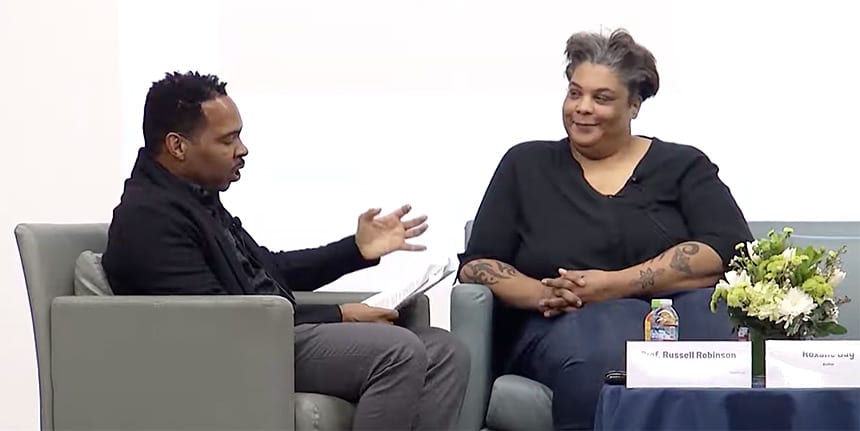
The Center on Race, Sexuality & Culture at Berkeley Law will examine contemporary questions of identity and discrimination through the lens of intersectionality. Intersectionality considers how race, gender, and sexual orientation (among other identities and systems) overlap to produce distinct experiences of vulnerability and resilience.
NEW REPORT – MARCH 2022
“Gayface” at the Academy Awards: Queer Representation without Queer People
Click here to download PDF
Click here to see the Op-ed
Authors:
Russell K. Robinson, Anna-Grace Nwosu, and Isabella Coelho
UPCOMING EVENTS:
Friday, March 1, 2024
9:00 AM to 5:00 PM
Room 100, Berkeley Law
Seat is limited. Please RSVP(opens in a new tab)
Equality Besieged: A Critical Analysis of Supreme Court Jurisprudence
California Law Review Symposium
With the reversal of Roe v. Wade in 2022, the Justices in the conservative supermajority on the U.S. Supreme Court dramatically curtailed reproductive rights and signaled an alarming willingness to abandon precedents that established other critically important rights. In June 2023, the Court rejected affirmative action policies modeled on those approved by the Court in Regents of the University of California v. Bakke and Grutter v. Bollinger. These are just two of several recent decisions that illustrate the tendency of this new Court to undermine, twist, and weaken law and doctrine that for decades have protected members of historically marginalized groups.
At the same time, the Court has “weaponized” the First Amendment to confer novel rights on conservative Christians. For example, in 303 Creative v. Elenis, the Court held that a web designer who opposes same-sex marriage has a First Amendment right to violate state antidiscrimination laws. Some Justices, in particular Justice Alito, have gone so far as to suggest that religious conservatives are the new minorities in need of judicial protection.
These rulings, rhetoric, and the reshaping of doctrine they effect constitute an attack on the laws and principles that have powered progress, however halting and incomplete, toward greater equality of opportunity for people who are members of historically marginalized communities. The conservative Justices have adopted formalistic and ahistorical reasoning in their opinions, and they have often displayed a disregard for the lived experiences of real people (unless they are conservative Christians). Although the opinions of the conservative Justices are at times brazen, their doctrinal moves are often complex and subtle and demand careful analysis. Progressive scholars must closely examine these opinions and develop the critiques, principles, and perspectives that will inform today’s dissents and enable tomorrow’s Justices to revive the Court’s commitment to equality. To advance the rights of subordinated people, progressive lawyers and scholars need a movement comparable in scope and ambition to that undertaken by conservative scholars and lawyers since the 1970s to undo liberal victories achieved during the era of the Warren Court.
*******************************************
Keynote Speakers
Cheryl Harris
Vice Dean for Community, Equality and Justice
Rosalinde and Arthur Gilbert Professor in Civil Rights and Civil Liberties
UCLA Law
Devon W. Carbado
Jesse H. Choper Distinguished Professor of Law
UCLA Law
Erwin Chemerinsky
Jesse H. Choper Distinguished Professor of Law
Berkeley Law
Khiara M. Bridges
Professor of Law
Berkeley Law
Moderators and Speakers
Kathryn Abrams
Rosalinde and Arthur Gilbert Professor in Civil Rights and Civil Liberties
Berkeley Law
Monica C. Bell
Professor of Law, Associate Professor of Sociology, and Counselor to the Dean
Yale Law School
Jennifer M. Chacón
Bruce Tyson Mitchell Professor of Law
Stanford Law School
Katherine M. Franke
James L. Dohr Professor of Law
Columbia Law School
Cary Franklin
McDonald/Wright Chair of Law
Faculty Director of the Center on Reproductive Health, Law, and Policy & Faculty Director of the Williams Institute
UCLA Law
Jonathan D. Glater
Associate Dean, J.D. Curriculum and Teaching
Faculty Director of the Center for Consumer Law & Economic Justice
Berkeley Law
Ian Haney López
Chief Justice Earl Warren Professor of Public Law
Berkeley Law
Vinay Harpalani
Don L. & Mabel F. Dickason Endowed Chair in Law
The University of New Mexico School of Law
Jerry Kang
Distinguished Professor of Law
Distinguished Professor of Asian American Studies (by courtesy)
UCLA Law
Genevieve Lakier
Professor of Law, Herbert and Marjorie Fried Teaching Scholar
The University of Chicago Law School
Chan Tov McNamarah
Visiting Assistant Professor
Cornell Law School
Jamelia Morgan
Professor of Law
Director, Center for Racial and Disability Justice
Northwestern University Pritzker School of Law
Dylan C. Penningroth
Professor of Law
Alexander F. and May T. Morrison Professor of History
Associate Dean, Program in Jurisprudence and Social Policy / Legal Studies
Berkeley Law
Russell Robinson
Walter Perry Johnson Professor of Law
Faculty Director, Center on Race, Sexuality & Culture
Berkeley Law
Seth Davis
Professor of Law
Berkeley Law
Brian Souccek
Professor of Law and Chancellor’s Fellow
UC Davis School of Law
Leti Volpp
Robert D. and Leslie Kay Raven Professor of Law in Access to Justice
Berkeley Law
Sponsored by:
California Law Review(opens in a new tab)
Center on Race, Sexuality & Culture
Co-Sponsored by:
Center for Race & Gender(opens in a new tab)